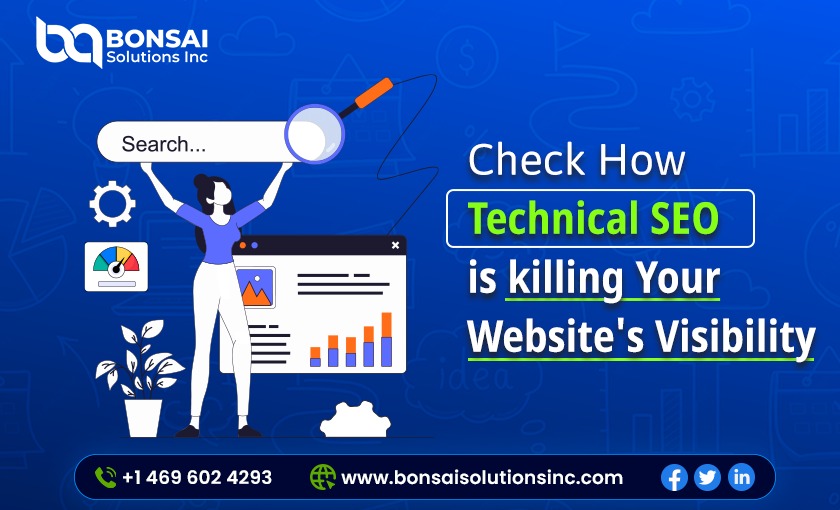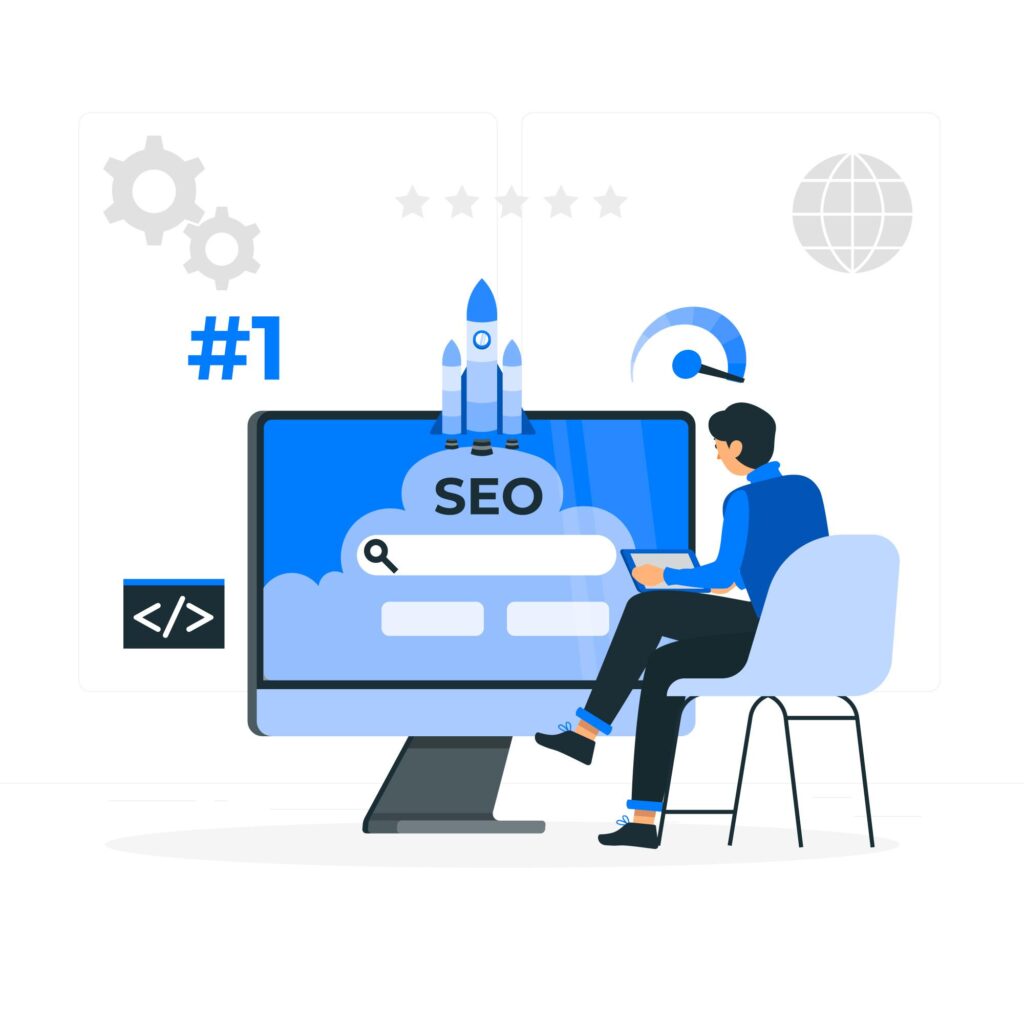
Introduction:
Are you looking to enhance the performance and visibility of your website? Look no further than technical SEO. In this comprehensive guide, we will delve into the fascinating world of technical SEO and unravel the secrets to optimizing your website for search engines. Whether you’re a seasoned marketer or starting, understanding technical SEO will empower you to rank higher, attract more organic traffic, and establish your online presence. So, let’s dive right in and unlock the power of technical SEO optimization.
What is Technical SEO?
Before we begin, let’s start with the basics: what exactly is technical SEO? Technical SEO refers to the optimization strategies and tactics implemented on a website’s backend by search engine bots to improve its visibility and crawlability. While on-page SEO focuses on optimizing content and user experience, technical SEO ensures that search engines can efficiently crawl, index, and understand your website’s structure and content. It involves working closely with the technical aspects of your website, such as coding, server configuration, and website architecture, to improve its search engine friendliness.
The Importance of Technical SEO Optimization:
In today’s competitive digital landscape, simply relying on great content is insufficient. It would help if you had a solid foundation of technical SEO optimization to rank higher in search engine results and drive organic traffic. Here’s why it is crucial:
- Improved Website Visibility: Technical SEO ensures that search engine bots can easily navigate your website and understand its content. By optimizing your website’s structure, URL structure, and metadata, you increase the chances of your pages ranking higher in search results.
- Enhanced User Experience: Technical SEO optimizations benefit search engines and improve the overall user experience. Fast-loading pages, mobile responsiveness, and intuitive navigation contribute to a positive user experience, increasing engagement and lower bounce rates.
- Better Indexing: When search engine bots can easily crawl and index your website’s pages, they are more likely to rank them in relevant search queries. By optimizing your website for proper indexing, you can ensure that your valuable content reaches the right audience.
- Outperform Competitors: Many websites overlook technical SEO, giving you a competitive edge when you invest in optimizing your website’s technical aspects. You can outperform competitors and attract greater organic traffic by addressing crucial technical elements.
Conducting a Technical SEO Audit:
To start your technical SEO journey, conducting an audit of your website is the first step. A technical SEO audit helps identify areas that require improvement and provides valuable insights into your website’s performance. Here are some steps to perform a comprehensive technical SEO audit:
Website Speed Optimization:
- Analyse page load times using tools like PageSpeed Insights or GTmetrix.
- Minify CSS and JavaScript files.
- Optimize images by compressing their size without compromising quality.
- Leverage browser caching to reduce load times for returning visitors.
Mobile-Friendliness:
- Check if your website is mobile-friendly by using Google’s Mobile-Friendly Test.
- Ensure your website has a responsive design that adapts to different screen sizes.
- Optimise font sizes, buttons, and images for mobile devices.
URL Structure:
- Ensure your URLs are descriptive, concise, and user-friendly.
- Implement canonical tags to avoid duplicate content issues.
- Remove unnecessary parameters or strings from your URLs.
Website Security:
- Use HTTPS encryption to secure your website and protect user data.
- Install an SSL certificate to enable secure browsing.
- Regularly update your website’s software and plugins to prevent vulnerabilities.
XML Sitemap and Robots.txt:
- Create an XML sitemap to help search engines discover and index your website’s pages.
- Optimize your robots.txt file to communicate crawl instructions to search engine bots.
- Submit your XML sitemap to search engines using Google Search Console or Bing Webmaster Tools.
Crawlability and Indexing:
- Check for broken links and fix them promptly to ensure smooth navigation.
- Use a sitemap to guide search engine bots to important pages.
- Avoid using excessive JavaScript or Flash elements that may hinder crawling.
Technical SEO Checklist for Website Optimization:
To simplify the process of optimizing your website for technical SEO, refer to this comprehensive checklist:
Website speed optimization:
- Minify CSS and JavaScript files.
- Compress and optimize images.
- Enable browser caching.
- Use a content delivery network (CDN).
Mobile-friendliness:
- Implement responsive design.
- Optimise font sizes and buttons for mobile devices.
- Ensure proper touchscreen compatibility.
URL structure optimization:
- Use descriptive and user-friendly URLs.
- Implement canonical tags.
- Remove unnecessary parameters or strings.
Website security:
- Use HTTPS encryption.
- Install an SSL certificate.
- Keep software and plugins up to date.
XML sitemap and robots.txt optimization:
- Create an XML sitemap.
- Optimize your robots.txt file.
- Submit your sitemap to search engines.
Crawlability and indexing:
- Check for broken links regularly.
- Use descriptive anchor text.
- Avoid excessive JavaScript or Flash elements.
Technical SEO is an ongoing process, and regularly reviewing and optimizing your website is essential to maintaining high performance and visibility.

Technical SEO vs On-Page SEO: Understanding the Differences:
While technical SEO and on-page SEO aim to improve website visibility, they focus on different optimization aspects. Let’s explore their differences to gain a clearer understanding:
Technical SEO:
- Focuses on backend elements like website structure, crawlability, and indexability.
- Optimises page load times, mobile-friendliness, URL structures, and security.
- Helps search engines better understand and rank your website’s content.
- Enhances user experience through faster page speeds and intuitive navigation.
On-Page SEO:
- Concentrates on optimizing the actual content and HTML elements of individual web pages.
- Utilises keyword research, title tags, meta descriptions, and header tags.
- Improves content quality, relevance, and keyword optimization.
- Aims to enhance user experience through valuable, informative, and engaging content.
Both technical SEO and on-page SEO are vital for a successful digital marketing strategy. While technical SEO focuses on your website’s structure and technical aspects, on-page SEO complements it by optimizing the content and HTML elements.
The Role of AI Technology in Technical SEO:
As technology advances, AI (Artificial Intelligence) is becoming integral to various industries, including SEO. AI technology offers numerous benefits in the field of technical SEO, revolutionizing the way websites are optimized. Here’s how AI is transforming technical SEO:
Intelligent Data Analysis:
- AI algorithms can analyze vast amounts of data quickly and accurately.
- Identifies patterns, trends, and insights to optimize websites more effectively.
- Enables data-driven decision-making for technical SEO strategies.
Automated SEO Tasks:
- AI-powered tools automate repetitive and time-consuming SEO tasks.
- Streamlines the optimization process and frees up more time for strategy development.
- Analyses SEO-related data generates reports and provides actionable recommendations.
Natural Language Processing (NLP):
- AI-driven NLP technology improves content optimization.
- Assists in analyzing user intent, optimizing for semantic search, and understanding context.
- Enhances keyword research, content creation, and on-page optimization.
User Experience Personalization:
- AI technology helps create personalized user experiences based on individual preferences.
- Improves website navigation, product recommendations, and engagement.
- Enhances user satisfaction and likelihood of conversions.
Voice Search Optimization:
- AI assistants like Siri, Alexa, and Google Assistant heavily rely on AI technology.
- Optimizing websites for voice search is crucial for staying ahead in the SEO game.
- AI-powered tools assist in understanding voice search patterns and optimizing content accordingly.
With AI technology continuously evolving, integrating AI tools and strategies into your technical SEO efforts can give you a competitive edge and maximize your website’s potential.
Conclusion:
You have now comprehensively understood technical SEO and its importance in optimizing your website for search engines. By implementing technical SEO strategies, conducting regular audits, and staying updated with AI-driven advancements, you can enhance your website’s performance, visibility, and user experience.
Technical SEO is a continuous process, so keep exploring new trends, staying updated with search engine algorithms, and refining your strategies accordingly. By consistently investing in technical SEO optimization, you will enjoy long-term benefits, increased organic traffic, and higher rankings in search engine results.

